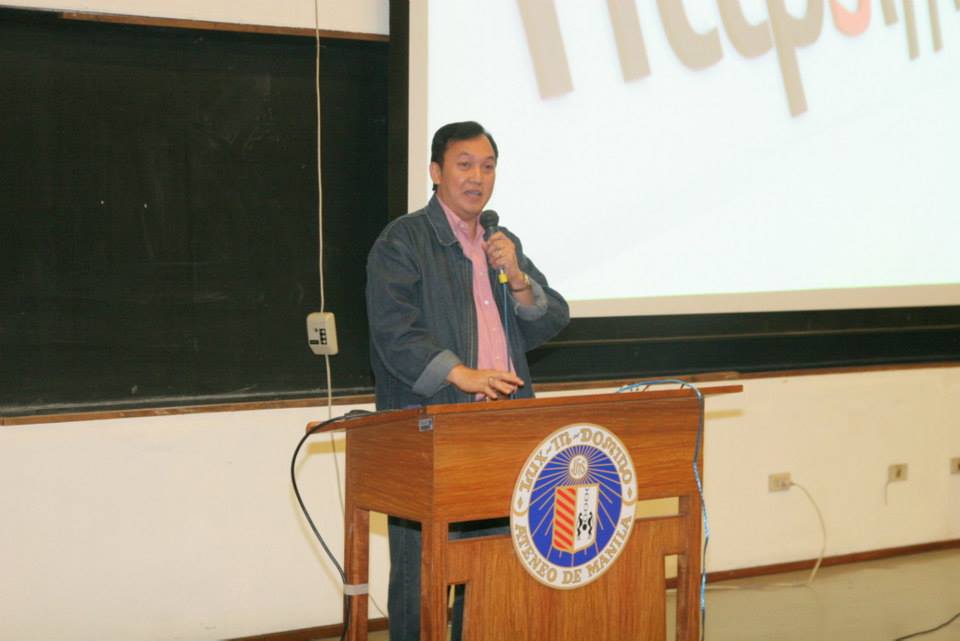Technology and the digital environment has effectively bridged different cultures, connected people and businesses in ways that we have not imagined possible. As an offshoot to the technological revolution, came the concept of big data. It refers to both the volume of data and the technology needed for analytics. Big Data is believed to be our future, watch the video below..
Big data, however, will only be beneficial, if information coming from different sources are merged and appropriate tool is applied to generate business, marketing, social and customer intelligences. This way, initiatives and strategic plans are data driven. Big data can also be used for surveillance and spying, both by the government and anyone who has or can have access.
Because of this, some believed big data has its nemesis- data privacy.
The information collected about you, ranging from social media behavior and internet surfing habits, to school, professional, financial, medical and any personally identifiable records is supposedly protected and will not be disclosed without your permission. Without data privacy, the chances of individuals and organizations getting hold of these information is high. Without data privacy, your club membership or credit card buying records can be sold to anyone at a right price.
In the virtual playground we call digital environment, unless we paid for the usage, we (our information) end up as the commodity.
Because of the opposing natures of the two, for as long as the digital environment exist, big data and data privacy will be at odds with each other.
Big Data and Social Business
Social Business will thrive with big data. Any campaign meant to engage different stakeholders like employees, consumers, business partners is enough to generate metrics that’ll be beneficial for strategic planning. Projects and programs of different departments will now be data driven.
Big Data and People Management and Development
The concept of big data can help HR in recruitment and talent management. My friend based in Cebu, Rodel Lagahit, gave a talk about Recruitment 3.0 wherein potential candidates are filtered and sourced from big data. The premise is that potential candidates are determined by the information collected from them and about them as soon as they started schooling.
The concept of big data can help HR in engaging her employees. Just imagine, if big data can provide information about your employees interests, places they visited, foods they like, advocacies they support, etc. Its easier to develop a program.
The concept of big data, theoretically, can also help HR in competency gap analysis prior to conceptualizing training design
Over Sharing Culture, Good For Big Data
While Europe has taken a step higher and passed a law on the “right to be forgotten“, the Philippines is following the lead of uncle sam on its free speech/expression doctrine. Fact is, we are so immersed on the “sharing culture” and have bordered on “over sharing”. But the more you share about your interests, places you visits and preference for movies, books, foods, clothes, etc. can make businesses tailor fit a product or services specific for you.
Data Privacy, Good For You Bad For Business
With the potential of big data and the benefits it can bring, there is also a downside to it. While arguably, big data can make processes and human living easier, there is a price to pay, and that is giving up on our right to privacy. Assuming you did something really really stupid, and because of social web, it’ll be a dark spot in your reputation for as long as you live. The french has an interesting law, le droit à l’oubli— the “right of oblivion”. A convicted criminal after serving their sentence and had been reformed, can start life with a clean slate. They can object to publication of its criminal history.
During my youth activism days, I read a book on how to become powerful. Unfortunately I forgot about the title and author, but I still remember two sources of power that the author suggests to have control over. These two can make you a force to contend with: First is Money and second Information.
Its difficult, if not impossible, to outwit a person or group who knows almost everything about you, the stupid things you did, unpaid debts, scandal video, etc.
While the data privacy law can protect you once information about you is collected, it cannot protect you, however, from your mobile and online behavior. So be conscious not only with what information are set to “public”, but also to the level of access you are giving to persons and groups behind the apps you download and use, browsers and sites you visits, to your personally identifiable information.

at Ateneo De Manila University Graduate School Marketing Forum
About a week ago or two, I was invited to a Marketing Forum at Ateneo De Manila University Graduate School. I started my talk with this framework:
“in the virtual environment we share, there are two prevailing schools of thoughts: Big data and data privacy. The first can make marketing job easier, but the other can keep you safe”.
Are you comfortable with the convenience that “big data” can bring, or you find it creepy? Do you agree with data privacy or you find it too restrictive?
Speak your mind and spark a conversation.
Discover more from ASKSonnie.INFO
Subscribe to get the latest posts sent to your email.






well this is the downside of the internet but it could also have a good side. I think its worth giving a shot. As you said and I quote, “The first can make marketing job easier, but the other can keep you safe” This could be the solution we need, the start of something new.
Very informative, good read mate!
cheers! http://www.masterryo.wordpress.com
This post is so true! I watched a video before from Facebook on where they can actually collect all the data that you have on your social media accounts. So really, we don’t have to share everything out there!